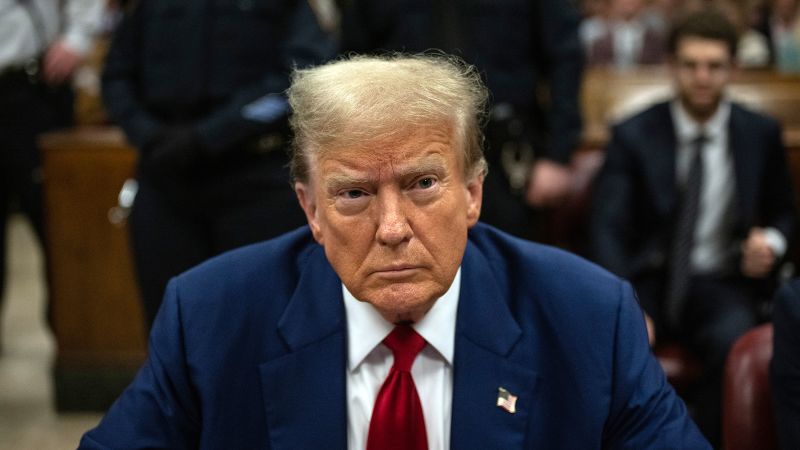Former President Donald Trump, in an interview with Time magazine, refused to dismiss the potential for political violence from his supporters if he isn’t elected in November, indicating that it would depend on the outcome of the presidential race. Trump’s remarks came in a wide-ranging interview that also delved into topics such as abortion, Israel Prime Minister Benjamin Netanyahu’s leadership, and other current issues.
One key takeaway from the interview was Trump’s refusal to dismiss the possibility of future political violence, citing concerns about the fairness of elections and continuing to push false election conspiracies. Trump’s history of refusing to accept election results or concede defeat highlights his unwillingness to commit to a peaceful transfer of power. He also reiterated his promise to pardon individuals sentenced for crimes stemming from the January 6 attack on the US Capitol.
In discussing abortion, Trump avoided taking a definitive stance on a federal abortion ban or the punishment of women who undergo abortions in states where it’s banned. His reluctance to comment on these issues highlights potential political pitfalls and the limitations of his approach to the matter. President Joe Biden’s campaign seized on Trump’s comments, suggesting that if elected, he would sign a national abortion ban and allow for the prosecution and punishment of women who have abortions.
Trump also faced scrutiny for his remarks on Israel Prime Minister Benjamin Netanyahu and his handling of security issues. Trump criticized Netanyahu for perceived security lapses during an attack by Hamas and declined to offer staunch support for Israel’s military response. Despite being critical of Netanyahu, Trump did not explicitly call for his replacement as prime minister and expressed doubts about the viability of a future two-state solution between Israel and the Palestinians.
In a rare moment, Trump expressed support for the release of Wall Street Journal reporter Evan Gershkovich, who is detained in Russia on espionage charges. Trump’s tepid support for Gershkovich, reminiscent of his past reluctance to forcefully condemn foreign leaders for mistreating perceived political enemies, drew attention. Trump’s handling of similar situations, such as the murder of journalist Jamal Khashoggi and the detainment of Russian opposition leader Alexey Navalny, has been criticized for failing to hold foreign leaders accountable.
Overall, the interview with Trump shed light on his continued refusal to dismiss the potential for political violence, his vague stance on key issues like abortion and Israel, and his handling of sensitive diplomatic matters involving detained journalists and human rights abuses. Trump’s statements in the interview underscored his approach to governance, characterized by a reluctance to commit to specific policy positions and a tendency to avoid direct condemnation of controversial actions by foreign leaders. As the former president remains a prominent figure in US politics, his remarks and actions continue to be scrutinized for their implications on domestic and international affairs.













